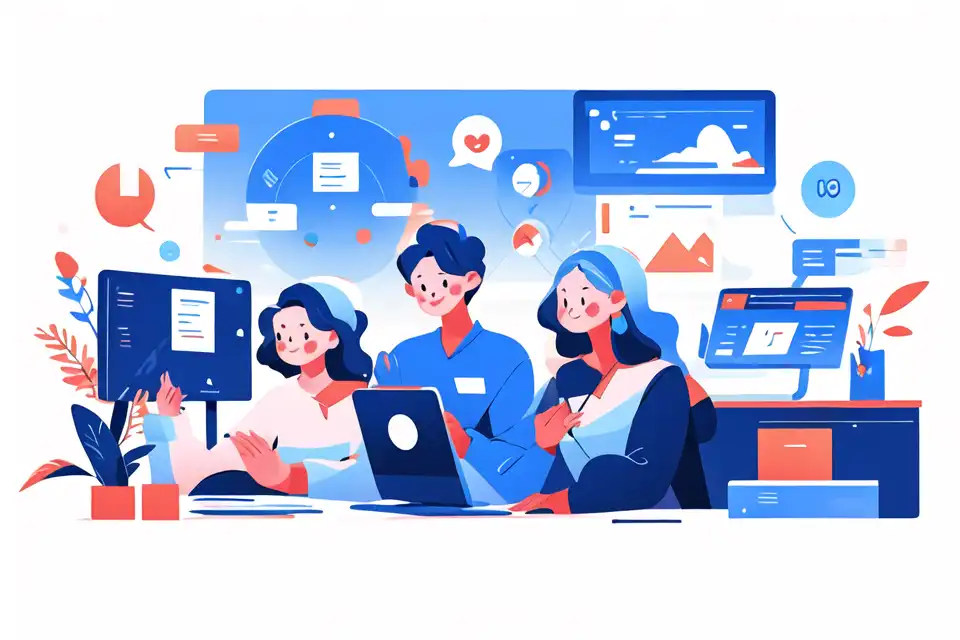
Artificial Intelligence (AI) Workforce Skills, also known as AI literacy, is the ability to understand, use, and manage the AI tools, techniques, and technology effectively. These skills range from basic comprehension of AI principles to advanced programming and data analysis capabilities. The AI skills spectrum also encompasses 'soft skills' like critical thinking, decision-making, and adaptability, essential for seamless human-AI collaboration.
AI Workforce Skills: A Key to Success in the Modern Business Ecosystem
In today's digitally-driven business landscape, AI workforce skills have become a strategic imperative. As per a 2020 Gartner survey, 58% of respondents reported AI as a game-changing technology. The ability to leverage AI tools and techniques can unlock unprecedented business opportunities, streamline operations, and create a more engaging customer experience.
Interesting Data on the Rising Importance of AI Workforce Skills
The demand for AI skills is growing exponentially. According to the World Economic Forum, nearly 50% of companies expect that automation will lead to a reduction in the full-time workforce by 2022. However, the same report also highlights that AI could create 58 million net new jobs in the next few years. This highlights the need for a skilled AI workforce that can adapt to the evolving business landscape.
"Unlock the power of Lark to elevate your business operations."
The power of ai workforce skills
Boosting Workplace Productivity and Innovation with AI Skills
AI can automate repetitive tasks, freeing up employees to focus on more complex, value-added activities. For instance, AI-powered chatbots can handle routine customer queries, while human agents tackle more nuanced issues. This not only boosts productivity but also fosters a culture of innovation.
The Tangible Benefits of AI Workforce Skills for Organizations and Employees
Implementing AI can deliver tangible benefits like improved efficiency, cost savings, and enhanced decision-making. For employees, acquiring AI skills can open up new career paths and opportunities for advancement. Moreover, businesses that invest in AI skills development report higher employee engagement and retention rates.
Roadmap to ai workforce skills integration
Steps to Incorporating AI Skills into Existing Work Processes
Successfully integrating AI skills requires a well-thought-out strategy. This includes identifying the areas where AI can add value, investing in AI training and development, and fostering a culture that embraces technological change.
Best Practices for Effective Adoption of AI Workforce Skills
Best practices for AI adoption include involving all stakeholders in the decision-making process, maintaining transparency about the impact of AI on jobs, and ensuring ethical AI use.
Technological aspects of ai workforce skills
Essential Tools and Platforms for AI Workforce Skills
Several tools and platforms facilitate AI skills development, from coding software like Python to machine learning platforms like TensorFlow. These tools enable users to build, train, and deploy AI models effectively.
Integrating AI Skills with Existing Business Systems and Workflows
Integrating AI skills requires seamless alignment with existing business systems and workflows. This could involve using API integrations, cloud-based platforms, and other technological solutions.
Learn more about Lark can help you with everything mentioned in the article.
Real-world examples of ai workforce skills at work
How a global tech firm is using ai to enhance collaboration and efficiency
How a global tech firm is using ai to enhance collaboration and efficiency
A global tech firm implemented AI to automate mundane tasks and foster better collaboration. As a result, its workforce could concentrate on strategic tasks, driving significant productivity improvements.
Overcoming challenges in ai workforce skills
Common Obstacles in AI Skills Adoption and How to Overcome Them
Common challenges in AI skills adoption include resistance to change, lack of training resources, and concerns over job displacement. Overcoming these obstacles requires a strategic approach that includes clear communication, comprehensive training, and reassurances about job security.
Addressing Concerns: Data Privacy and Job Displacement
Addressing concerns about data privacy requires robust cybersecurity measures and strict adherence to data protection laws. As for job displacement, businesses must emphasize that AI is meant to augment human capabilities, not replace them.
Learn more about Lark can help you with everything mentioned in the article.
Looking ahead: future trends in ai workforce skills
Emerging Applications of AI Skills in Various Industries
From healthcare to finance, AI skills are finding applications in various industries. The future may see more widespread AI adoption, necessitating a skilled AI workforce.
Preparing for the Evolution of the Workforce
As AI continues to evolve, businesses must prepare their workforce for the changes ahead. This includes continuous learning initiatives, reskilling programs, and a focus on developing 'soft skills' that complement AI capabilities.
Conclusion: the last word on ai workforce skills
Recap: The Profound Impact of AI Workforce Skills on Business Dynamics
AI workforce skills have the potential to transform business dynamics radically. From driving innovation to fostering a more engaged workforce, the benefits of AI are manifold. However, realizing these benefits requires a proactive approach to AI skills development and integration.
Encouraging Responsible Innovation in AI Workforce Skills
As businesses navigate the AI revolution, it's crucial to encourage responsible innovation. This involves ethical AI use, transparent communication, and a commitment to upskilling the workforce to thrive in the AI-augmented future.
"Unlock the power of Lark to elevate your business operations."








